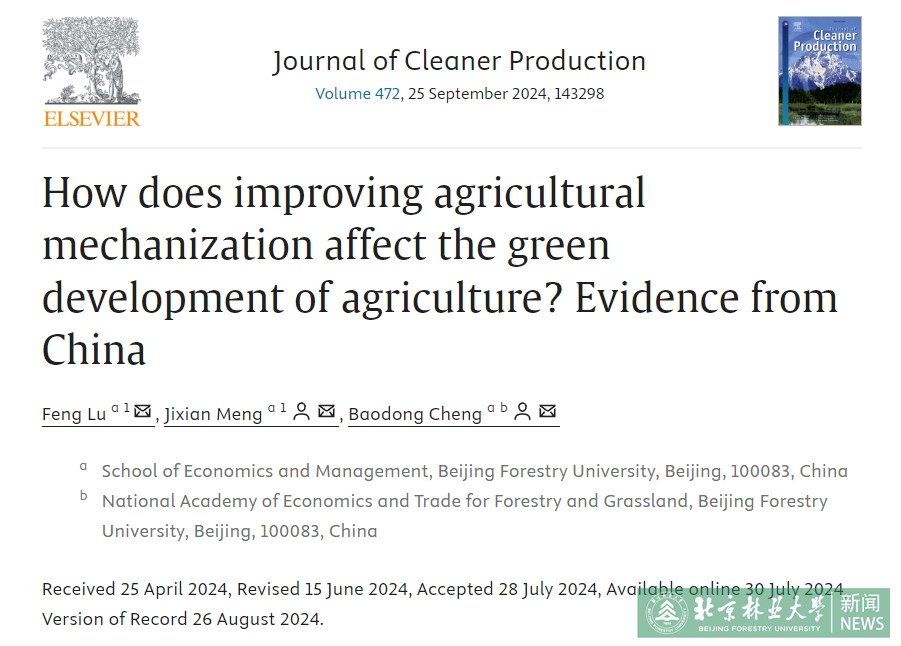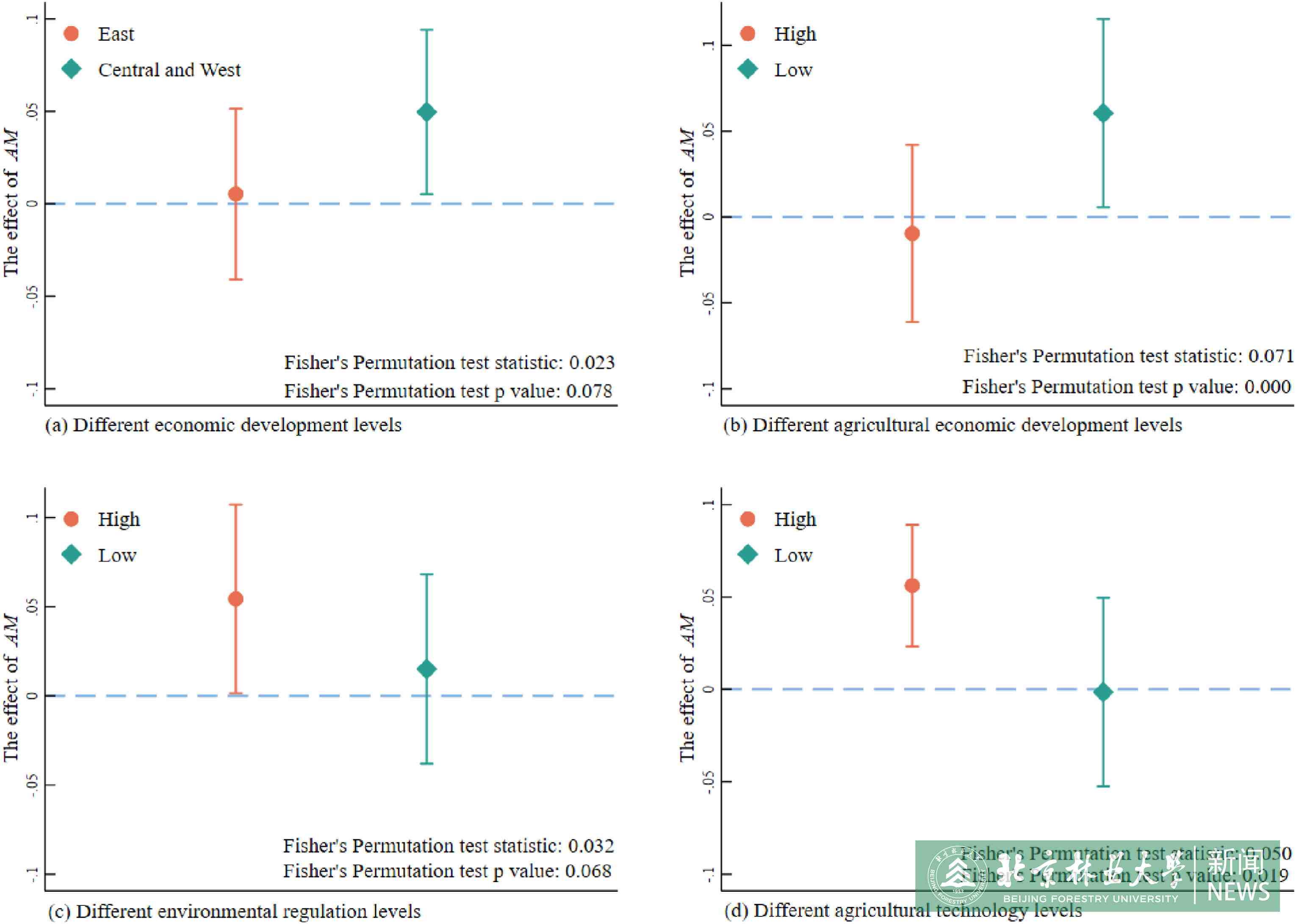Latest news
The research group led by Professor Cheng Baodong from Beijing Forestry University's National Academy of Economics and Trade for Forestry and Grassland (NetFG) has recently completed a new publication. Their latest paper, titled "How does improving agricultural mechanization affect the green development of agriculture? Evidence from China," was published online in the Journal of Cleaner Production, a leading journal in the field of environmental science and ecology with an SCI impact factor of 9.7. This study explores the role of agricultural mechanization in advancing sustainable agriculture in China.

Over the past two decades, China has actively pursued a green, low-carbon economy in response to climate change. Amidst rapid economic development, China's green total factor productivity—a key metric reflecting the nation's green development—has notably risen. As a developing country with a population exceeding 1.4 billion, agriculture plays a key role in China. China has persistently strived to comprehensively promote the scale and scope of agricultural mechanization, recognizing it as a crucial gauge to enhance agricultural productivity, thereby facilitating agricultural modernization and ensuring food security. However, can elevating the agricultural mechanization level improve China's green development within the agricultural sector? Specifically, how does agricultural mechanization (AM) affect agricultural green total factor productivity (AGTFP)? To address these questions, the effects of agricultural mechanization on agricultural green total factor productivity have been assessed and its channels using panel data from 30 provinces in China spanning from 2000 to 2021 have benn examined. Additionally,the heterogeneous effects under different levels of economic development, agricultural economic development, environmental regulation intensity, and agricultural technology have been investigated. The results indicate that: First, the development of agricultural mechanization promotes the agricultural green total factor productivity. Second, channel analysis indicates that agricultural mechanization can bolster agricultural green total factor productivity through three channels: enhancing agricultural management level, improving agricultural factor efficiency, and fostering diversification of agricultural industrial structure. Third, heterogeneous analysis suggests that agricultural mechanization exerts a more pronounced impact on agricultural green total factor productivity in provinces characterized by lower levels of economic development, more backward agricultural economic development, higher environmental regulation intensity, and more advanced agricultural technology. This article is anticipated to furnish empirical evidence from China for developing nations seeking to foster agricultural green sustainable development through the widespread adoption of agricultural mechanization, thereby contributing significantly to global efforts to mitigate climate change.

Lu Feng, PhD candidate from the 2022 class in the School of Economics and Management, is the first author of the paper, with youth teacher Meng Jixian and Professor Cheng Baodong as the corresponding authors.
This work was supported by the National Natural Science Foundation of China (Grant No. 72101253; 72073012) and the Fundamental Research Funds for the Central Universities (2024SKQ05; BLX202125; 2023SKY20) and the National Forestry and Grassland Administration of China (202300901).
Link: https://doi.org/10.1016/j.jclepro.2024.143298
Written by Lu Feng
Translated and edited by Song He
Reviewed by Yu Yangyang










